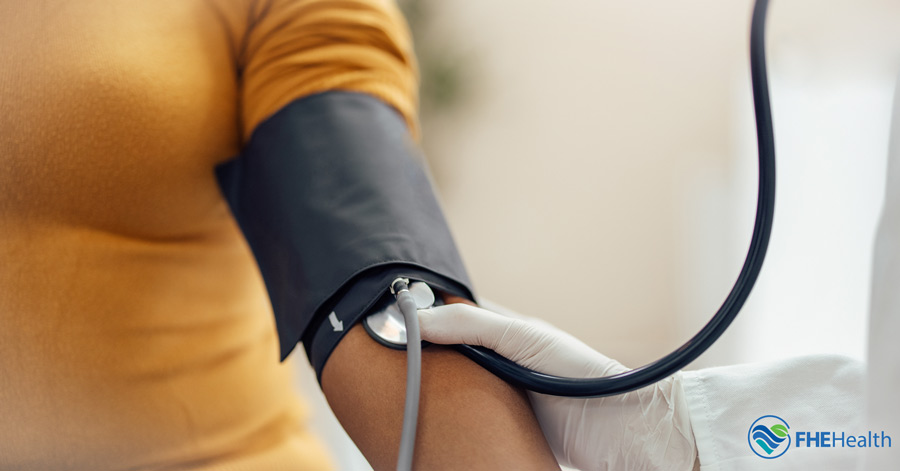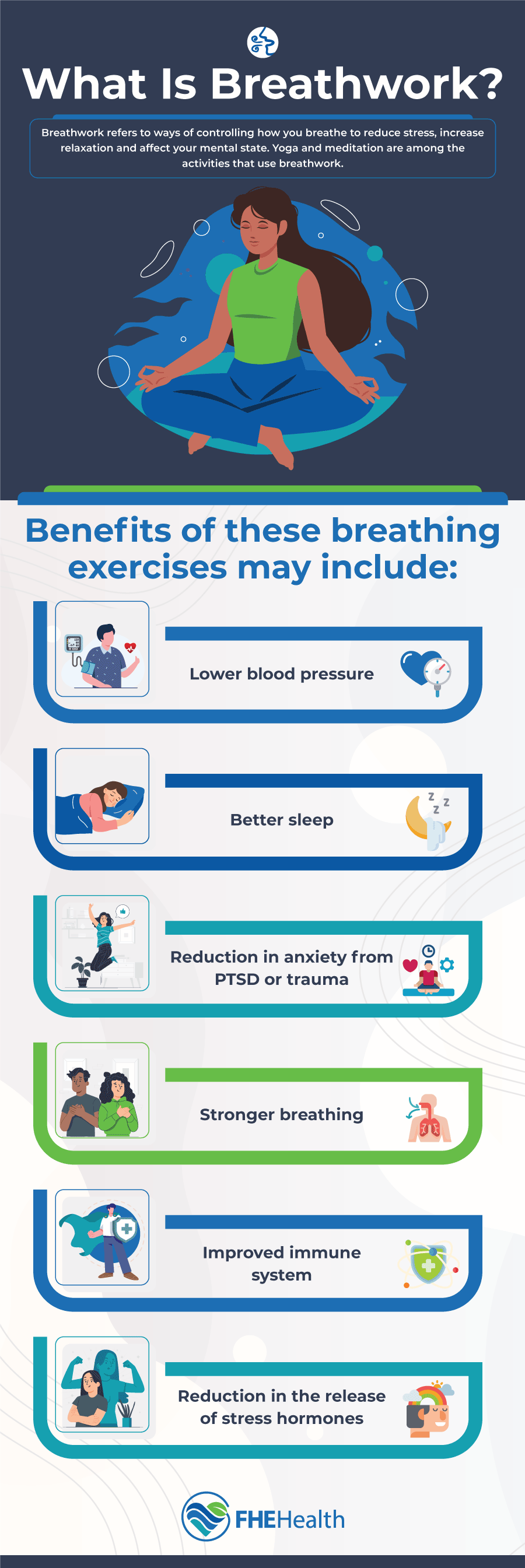
High blood pressure can be a serious problem for your health. Having this condition means that your blood is pushing too hard against the walls of your arteries, which can lead to damage. Hypertension may also lead to conditions like heart disease or stroke. Fortunately, you can manage high blood pressure naturally by changing your diet, exercising more frequently, or using breathing techniques to lower blood pressure.
The Importance of Managing Blood Pressure
There are a few reasons why it’s important to manage your blood pressure and keep it at an optimal level, but the main reasons are that a balanced blood pressure keeps your heart healthy and increases your life span.
An adult’s normal blood pressure, on average, is 120/80 mm Hg or lower. This is the ideal level that you should aim for. Increased blood pressure falls into three categories: elevated, stage 1 hypertension, and stage 2 hypertension. When measuring your blood pressure, you can tell which category your reading falls under by looking at the following ranges.
- Elevated blood pressure has a top number between 120 to 129 mm Hg and a bottom number below 80 mm Hg.
- Stage 1 hypertension has a top number of 130 to 139 mm Hg with a bottom number between 80 and 89 mm Hg.
- Stage 2 hypertension has a top number of 140 mm Hg or higher and a lower number of 90 mm Hg or greater.
If your blood pressure reaches 180/120 or higher, it is called a hypertensive crisis (or hypertensive emergency) and you should seek emergency care. In that situation, it’s possible that the higher blood pressure could trigger a heart attack or stroke (if not other health issues).
What Is Breathwork?
Breathwork refers to breathing exercises or techniques that help get your breathing under control and calm your body. Breathwork is most commonly used to improve mental, spiritual or physical health by monitoring your breathing and changing it into a systematic, intentional rhythm.
The goal of breathwork is to reduce stress, promote relaxation, and increase energy. It can also be used to lower your blood pressure overall or help you get more consistent readings when measuring your blood pressure.
Breathwork is used for all kinds of purposes, such as:
- Improving immunity
- Developing better self-awareness
- Improving personal or professional communication and relationships
- Handling emotions and helping process them
- Calming anger or anxiety
- Addressing chronic pain
- Addressing depression
Breathwork can have amazing physical benefits that include reducing blood pressure and getting it back under control.
How Does Breathwork Affect Hypertension?
So, does deep breathing lower blood pressure? Breathing to lower blood pressure works, which may be a surprise since the practice is so straightforward.
In fact, according to the Japanese Society of Hypertension, taking six deep breaths within just 30 seconds will significantly reduce your blood pressure. The reason? Your body gets an opportunity to get more oxygen, calm down and relax.
In the Journal of the American Heart Association, a study found that subjects who took blood pressure medications had similar results in the reduction of their blood pressure to those who walked just 30 minutes a day while focusing on better breathing and more consistent exercise. The same study found that taking five minutes out of your day to do breathing exercises at least six days per week could result in improved blood pressure numbers.
The good news is, you don’t need to do any fancy breathing exercises. Just taking long, slow deep breaths for around 30 seconds is enough. However, there are other variations of breathing techniques you may want to try if you’re interested in using breathing techniques to lower blood pressure regularly.
Most people who want to learn new breathing techniques start by talking with their primary care providers. Medical providers may be able to refer you to alternative medicine practitioners who teach breathing techniques. In some cases, your primary care provider or specialist health care provider may know certain techniques that work with your medical condition and be able to walk you through the steps to get started.
How to Practice Breathwork On Your Own
Breathwork can be as simple or as complex as you make it. For example, you can take a few deep breaths to calm yourself over 30 seconds or a minute and that might be enough for you. For more consistent results, though, you may want to look into the established forms of breathwork to learn from a professional.
There are several forms of breathwork that you can learn, including the following:
- Vivation
- Transformational breath
- Holotropic breathwork
- Shamanic breathwork
- Rebirthing
- Clarity breathwork
Among those, there are specific exercises you may want to try, like:
- Box breathing
- 4-7-8 breathing
- Alternate nostril breathing
- Pursed lip breathing
- Diaphragmatic breathing
Once you select the type of breathwork you want to try, it may be helpful to start by visiting a practitioner who can walk you through the process. After that, you may be able to begin practicing on your own or with input from a professional as needed.
Alternative Medicine for Wellness
Breathing to lower your heart rate and finding out how to breathe during a blood pressure test to get a better result can both be beneficial for you. Over time, breathing to lower blood pressure may help reduce the risk of cardiovascular health problems, stroke, and stress on the autonomic nervous system.
Better breathing techniques aren’t all that will help, though. You may also want to consider taking part in meditation or relaxation activities to calm your body and mind. Explore relaxation techniques and hobbies like yoga, meditation, or massage, among others, to see which works best for you.
At FHE Health, we’re here to help you on your pathway to healthier living. If your blood pressure is too high, talk to us about it. Our team may be able to help you get it back under control while you’re focusing on your recovery.







